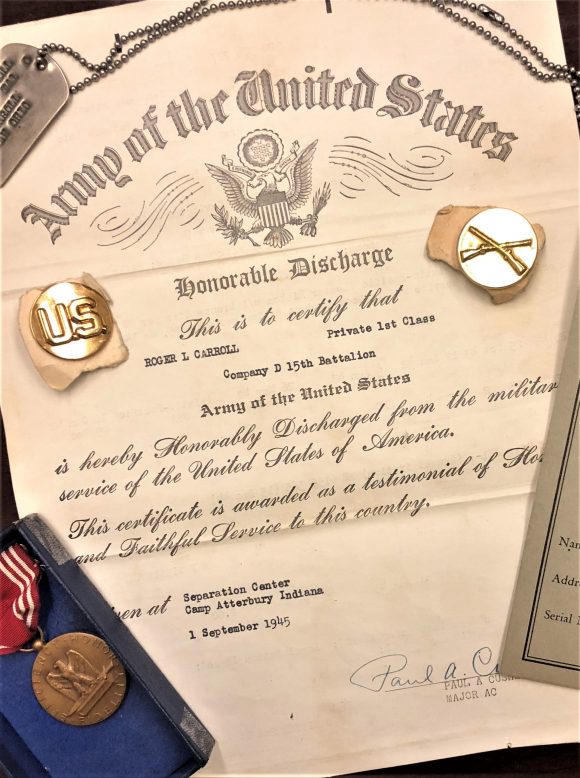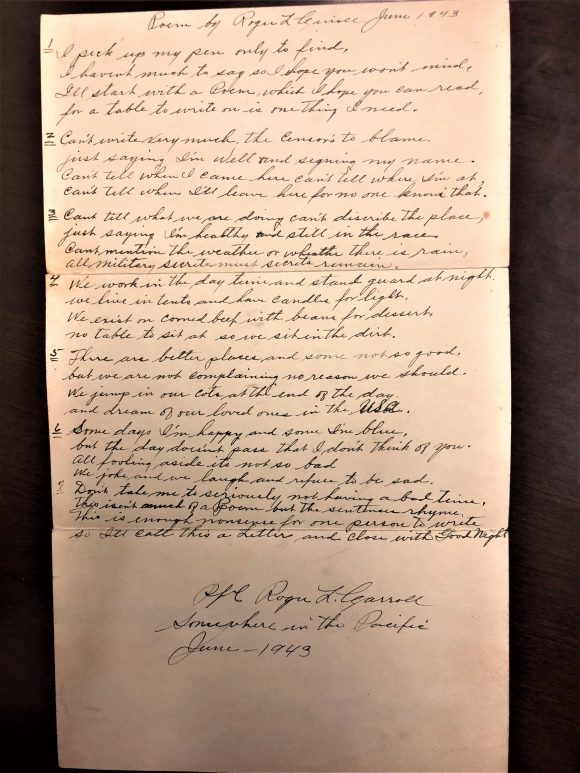A Poem About Saying Nothing WWII Censorship in the Center for American War Letters Archives
May 30, 2019
During the Second World War, correspondence with loved ones back home was highly encouraged to boost morale and remind the home front of the people for whom they were working so hard. At the same time, however, military censorship evolved beyond the previous great war due to new intelligence gathering methods by the enemy. Anything could be deemed a military secret, including the location of a particular soldier. If American soldiers mail were to be captured, the enemy could gain a tactical advantage. The Center for American War Letters Archives is filled with letters from soldiers attempting to toe that line, telling their stories to their loved ones without divulging information. Sometimes, it felt like there was nothing they could say.
From time to time, this annoyance was addressed by soldiers in their letters home. From telling their wife that they cannot give specifics, or explaining to mom that there just is not much more to say. In a recent find in the Archives, Private First Class Roger L. Carroll of the United States Army got a little more creative when he sent home a poem addressing the issue from the Battle of Bougainville in the South Pacific. Here are his words from June 1943:
I pick up my pen only to find,
I haven’t much to say so I hope you won’t mind,
I’ll start with a Poem, which I hope you can read,
For a table to write on is one thing I need.
Can’t write very much, the censor’s to blame.
Just saying I’m well and signing my name.
Can’t tell when I came here, can’t tell where I’m at,
Can’t tell when I’ll leave here for no one knows that.
Can’t tell what we are doing, can’t describe the place,
Just saying I’m healthy and still in the race.
Can’t mention the weather or whether there is rain,
All military secrets must secrets remain.
We work in the day time and stand guard at night,
We live in tents and have candles for light.
We exist on corned beef with beans for dessert,
No table to sit at so we sit in the dirt.
There are better places and some not so good,
But we are not complaining, no reason we should.
We jump in our cots at the end of the day,
And dream of our loved ones in the USA.
Some days I’m happy and some I’m blue,
But the day doesn’t pass that I don’t think of you.
All fooling aside it’s not so bad.
We joke and we laugh and refuse to be sad.
Don’t take me too seriously, not having a bad time,
This isn’t much of a Poem but the sentences rhyme.
This is enough nonsense for one person to write
So I’ll call this a letter and close with Good Night.
PFC Roger L. Carroll
Somewhere in the Pacific
June 1943
A poem like this is a great find for the study of censorship and the experience of soldiers overseas who wanted to reach out, wanted to tell someone about what they have seen and what they are going through. The rest of the letters, all of those that are censored, also provide an insight into the soldiers’ experiences. What is not said is often as important as what is said.



